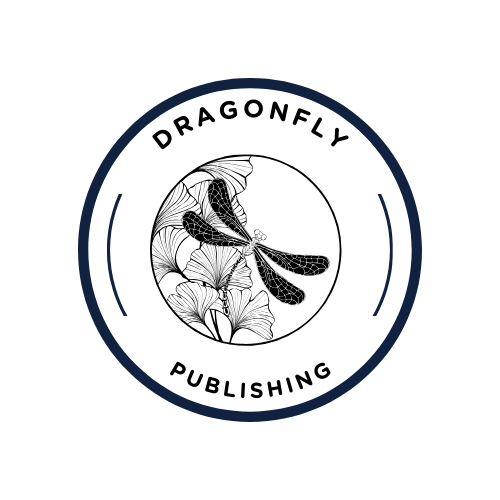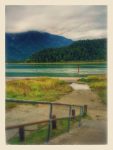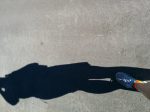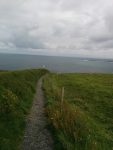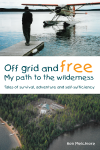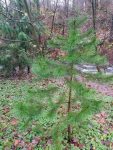I am giving myself a short break from reading and interviewing authors of environmental novels and finally have the time to sink into Naomi Klein’s non-fiction This Changes Everything, a fantastic read. I honestly held out on it back when I was trying to buy a physical copy whose money was to go to the Unis’tot’en Camp, but I did not hear back on whether those books were being sold to help the camp so finally just bought the Kindle version.
Just as Margaret Atwood has termed climate change “the everything change,” so has Klein suggested that everything indeed must change in order for us to adapt to the Anthropocene, to our own creation of this climate crisis, in fact. Sometimes, to me, it just doesn’t seem likely that this will ever happen on a grand enough scale to make a difference. Look at the division in government in the US that halts progress and causes divide (just like the current Republican letter to Iran to embarrass President Obama–a letter that Fred Kaplan, in Slate, rightly called stupid). Seriously, the US government is entangled in a mire of brambles and there is not a shining light to guide the country through this everything-change. Canada’s Harper-pro-industry (oil sands, fracking) system isn’t better. Residents, along with progressive technologies working with the environment in mind, are our only hope. We are our only hope when it comes to climate change. I think it would take a few brilliant minds to skip past the old adage that we made our bed and now must lie in to we made our bed and now must unmake it and put on fresh sheets.
It is not easy. It will not be easy. One of the things Klein points out is that we have to look at our own lifestyles and rethink them. She doesn’t judge; she puts herself in the same place. A lot of us are used to the kind of lifestyles that we were born into, and these lifestyles are reliant on the same industries that made climate change a thing, and continue to do so. I actually once went to a day-long course in the rainforest north of here to learn more about permaculture. The idea behind permaculture is fascinating and makes sense–I developed the same concepts in my novel Back to the Garden. Unfortunately, this particular retreat incorporated some stuff on top of the otherwise interesting concept of farming–including eastern religion, fractals, and an environmental church that the teacher was trying to build. He said that he needed to fly somewhere to start this church, and then fly other places. I was thinking to myself–since I’ve been here, I was refused a napkin because…”save a napkin”, and we made it a big point to eat local organic foods only–and we chanted “ohms”, and here he is flying away to start a movement. Isn’t it ironic? I can hear Alanis Morissette sing it. The guy–can’t remember his name–said, “We were born into this society where the only way to do this stuff is to, at times, have to emit greenhouse gases when we travel, to get our word out. It’s not our fault. We are living with what we were born in to, so don’t feel badly.”
But I do feel badly. I keep telling my husband that we should change our lifestyle. I feel a lean toward living off the land and going out to the country to raise chickens for eggs and having a big garden–but we may never get there because, for one, that would cost money we don’t have. It doesn’t matter what we were born into; we have to change our old habits. And we are, slowly but surely. This is that part of “everything changes” that I am reading about now. It is hard. It is not easy. The first part is just consuming less: food-wise and otherwise. The second part is recycling, not just cans and paper but clothes, books, and other things. The third part, for us, is making our own stuff if we don’t buy used–and that includes furniture and crafts and gifts. The fourth part is to watch where we get stuff; my press, for instance, uses only recycled or forest-managed paper. The fifth part is to not contribute to the industries contributing the most to climate change–that means watching beef intake, not driving as much, and, again, buying products that do not cause deforestation. We’ve made several joint decisions during our almost nine-year marriage, including getting healthier (we both started running, eating better), taking less flight vacations (this summer we are stay-cationing except for perhaps a local tent-camping holiday), taking transit or carpooling, buying organic, free-range, or local meats and eggs–though I am now mostly a vegetarian–growing much of our own veggies in the summer, and so on. Still, we have most modern conveniences and are part of the problem.
Today I ran while thinking about this everything change. Running for me is still hard–and sometimes I laugh at myself for even blogging about it; some people in my Strava list run 100 miles a week, and I hit 8 if I’m lucky. Running is hard, I think, for me, especially running up hills, but I keep going. Running up hills is harder, much harder, than doing without cheeseburgers, without fashion, without a new appliance that just does something I can do with my hands anyway. These choices don’t have to be hard.
I realize that I’m rambling, but Klein’s book is a must-read. It’s more economic-smart than anything but takes great care to acknowledge that the health of our planet is much more important an issue than deserves to be tucked between taxes and other policy issues. She also points out that capitalism has a selfish place in the arena of climate change–to be in denial it’s happening (which is where we’re at) and to find ways to profit off of it (which is also happening). Both of these places are bad places, and we need to climb out of them.
